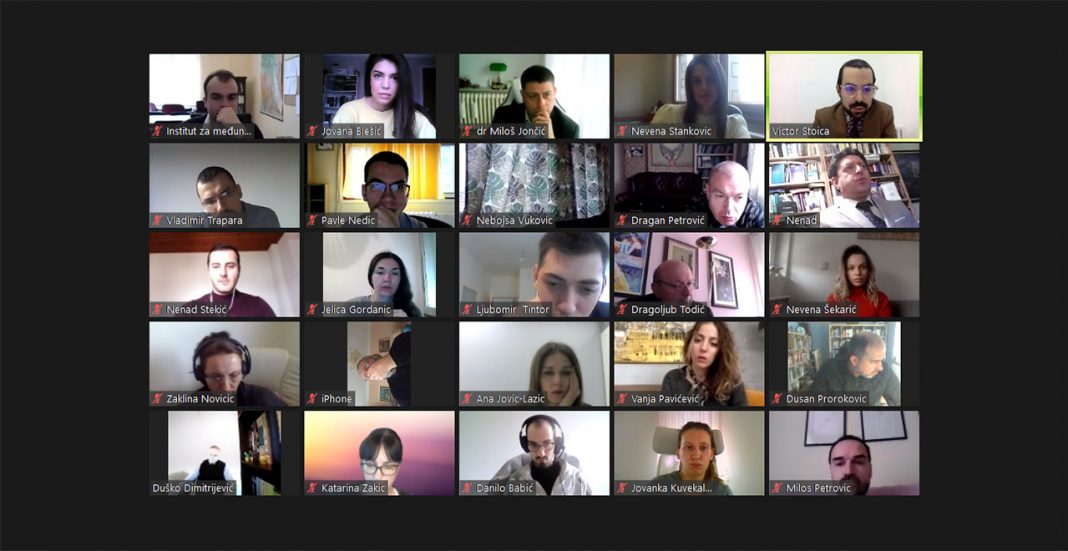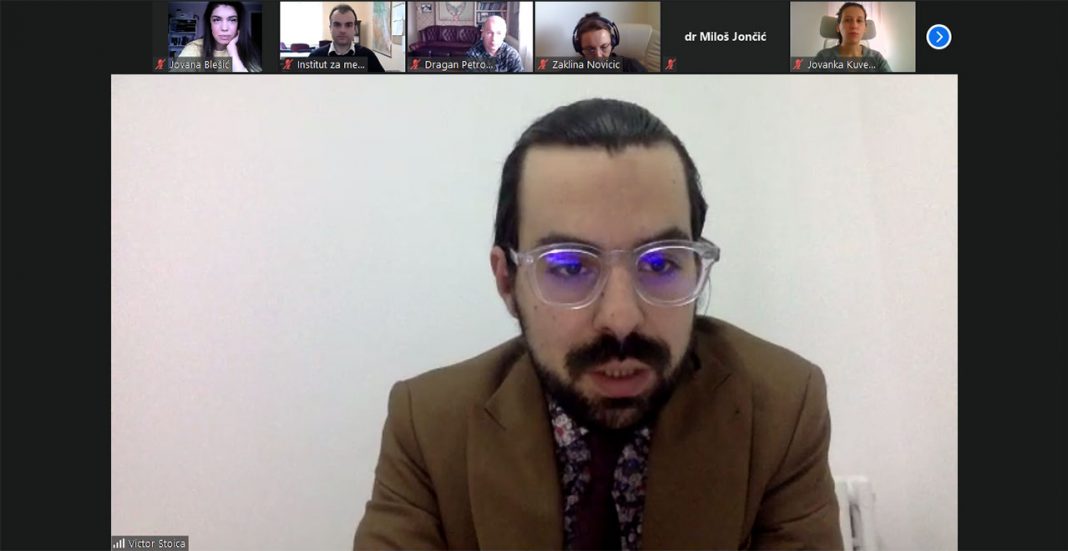The fourth gathering in the format of IIPE International Law Sessions brought Dr Victor Stoiça, Assistant Professor at the Faculty of Law University of Bucharest, to talk about the impact of international relations on the application of the remedies of international law by the International Court of Justice. Dr Stoiça`s analysis of the practice of the International Court of Justice shows that in various factual contexts various legal remedies are used by the Court, whilst the hierarchy among the various remedies is not identical to the one that the International Law Commission uses in its Articles on State Responsibility for Internationally Wrongful Acts. Therefore, one can conclude that the ICJ, as the organ of the United Nations that adjudicates inter-state disputes and aims to secure the global international legal order, uses legal remedies that might in given circumstances realistically secure the settlement of the dispute and future relations between the parties that are in accord with the UN targets. Thus, the declaratory judgment, as a simple declaration that the law has been breached is the most often used remedy in front of the Court, since the declaration itself strives to restore the stability of the legal order that was upset by the wrongful act. On the other hand, more invasive legal remedies such as compensation, which could experience practical obstacles and resistance to their implementation, are rarely adopted.
© Copyright 1996-2025. IIPE. All rights reserved



